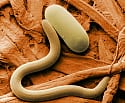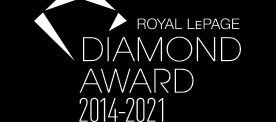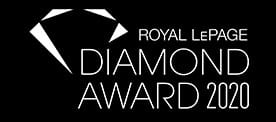 With the winter almost a distant memory, many of us are thinking about our lawns; preparing them for springtime and the sunny days ahead. As I was raking the dead leaves that have gathered over the winter under the shrubbery, I was reflecting on my ongoing battle with the pests that try to inundate the very soil that nurtures all of the vegetation. Certainly, there have been challenges keeping the pests at bay as over the past few years, Wasaga Beach (and Ontario) are chemical free which changes our defenses with fertilizers and soil additives. Although chemical-free is a much healthier option for all of us, getting a system in place that truly works can be daunting. Through trial and error, I’ve found that Nematodes are my cure-all for the larvae, slugs and pests that try to infest our lawn and the BEST news is that they are safe for humans and pets!
With the winter almost a distant memory, many of us are thinking about our lawns; preparing them for springtime and the sunny days ahead. As I was raking the dead leaves that have gathered over the winter under the shrubbery, I was reflecting on my ongoing battle with the pests that try to inundate the very soil that nurtures all of the vegetation. Certainly, there have been challenges keeping the pests at bay as over the past few years, Wasaga Beach (and Ontario) are chemical free which changes our defenses with fertilizers and soil additives. Although chemical-free is a much healthier option for all of us, getting a system in place that truly works can be daunting. Through trial and error, I’ve found that Nematodes are my cure-all for the larvae, slugs and pests that try to infest our lawn and the BEST news is that they are safe for humans and pets!
Now you may be asking “WHAT is a Nematode!??” Although you can find lots of information on the internet to answer this question, simply put, Nematodes are live worms; roundworms to be exact. Naturally occurring they are ferociously hungry!! There are many types of Nematodes but for the record, they are parasites. This blog will just speak about those type of Nematodes that are helpful to our lawns as well as safe to be used around humans and animals. This type of Nematode you will find in the soil naturally and feeds on grubs, larvae and other pests but NOT on earthworms or plant life, with no risk to humans or animals. I’m sure that over the years you’ve noted those yellow and brown spots on your lawns; and I’m not speaking about where your pet has peed. Now you can say goodbye to those dead or dying spots on your lawn where the grubs and larvae have been feeding on grass roots; killing the plant off completely.
This is how the process works! The Nematode enters through openings in its host (perhaps the mouth, respiratory area, anus) and then it starts to feed. The feeding actually causes a bacteria to be excreted from the Nematode’s intestine which very quickly spreads inside its host. A process now happens where the tissue inside of the host grub/larvae is converted to food for the Nematode. In a day or two, this process kills the grub/larvae. Once again I’m going to say that it is comforting to know that these Nematodes are completely safe. When the Nematodes build up in your lawn, your woes from many species of larvae, grubs and beetles are over. A list of some species of the grub and larvae pests the Nematodes kill off include Japanese Beetles, Northern Masked Chafer, European Chafer, Rose Chafer, Fly larvae, Oriental Beetles, June Beetles, Flea beetles, Bill-bugs, Cut-worms, Army worms, Black Vine Weevils, Strawberry Root Weevils, Fungus Gnats, Sciarid larvae, Sod Web-worms, Girdler, Citrus Weevils, Maggots and other Dip-tera, Mole Crickets, Iris Borer, Root Maggot, Cabbage Root Maggot and Carrot Weevils.
NOTE: The soil must be at least 12 degrees before you apply your Nematodes. Also, you must remember that in most cases, Nematodes are alive and when you buy them you will notice they have a ‘best before’ date. Nematodes are bought at your garden centre or hardware store, from a fridge (in most cases). Most Nematodes MUST be kept refrigerated and applied asap when fresh, and certainly before that ‘best before’ date has expired although at Home Depot in Collingwood, they were telling me that this year they have a little ‘ball’ that doesn’t have to be refridgerated. The Nematodes will need to be applied with your garden hose (there is a special hose ‘end’ you will need to buy from the hardware store to apply the Nematodes). After applying, the Nematodes will need to be watered in for about three hours. Once these little critters are established, your lawn will be the envy of the neighborhood.
From a lifetime of living in Wasaga Beach, we have so much insight, knowledge and information on many subjects, specefic to our area, that we want to share with you. Perhaps you have a topic that you would like to learn more about; specific to the Georgian Triangle. Leave me a note and we will do our best to thoroughly answer your inquiries. Over the weeks ahead, please come learn more about us and our area, and you too will understand why so many folks are heading to the shores of Georgian Bay to have their own Wasaga Beach address. If you are thinking of calling this area home or want to have your own vacation retreat, our Brokers – Chad (705-443-9444) or Scott (705-446-6602) would feel privileged to help make your Wasaga dream come true!
Linda Campbell
Marketing Manager for The Campbell Team



